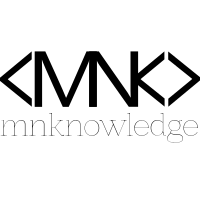Description
Scientists spend a significant amount of time writing, maintaining and debugging software. While techniques for doing this efficiently have evolved, only few scientists have been trained to use them. They end up being overwhelmed by the coding challenges they face and keep re-inventing the wheel. In the hope to free more time for research they increasingly rely on generative AI, which may produce runnable code without the need to fully understand it. Such code can neither be reused nor trusted to work correctly and, as a result, scientists are hesitant to share it and publish it.
In this course we will present a selection of advanced programming techniques and best practices which are standard in the industry, but especially tailored to the needs of a programming scientist. Lectures are interactive and allow participants to acquire direct hands-on experience with the topics. Participants will work in pairs throughout the school and will team up to practice the newly learned skills in a real programming project — an entertaining computer game. We use the Python programming language for the entire course.
This school is targeted at PhD students, postdocs and more senior researchers from all fields, who do a lot of programming in their academic life, but were never taught how to do so properly. Competence in programming and basic knowledge of Python and git is assumed. Participants are required to work through the proposed introductory material before.
🌈 We strive for a welcoming and sociable atmosphere for scientists from all walks of life. In particular, we focus on recruiting an international and gender-balanced pool of students: see how far we got in previous years!
Date & Location
21–28 September, 2025. Plovdiv,  Bulgaria
Bulgaria
Applications
The deadline for application has expired. If you missed it, write to info@aspp.school to be put onthe announcement list for next year.
The 28 participants have been selected!
Participation is for free, i.e. no fee is charged! Participants however should take care of travel, living, and accommodation expenses by themselves.
Program
- Large-scale collaborative scientific code development with git and code forges
- Testing and debugging scientific code
- Organizing, documenting, and distributing scientific code
- Data in scientific programming
- Scientific programming patterns in Python
- What every scientist should know about computer architecture
- Writing parallel applications in Python
- Programming in teams
Sponsors
ASPP2025 is hosted by the Technical University of Sofia, Plovdiv branch. The organization is done in collaboration with MNKnowledge and with the financial and institutional support of the Tübingen AI Center.

